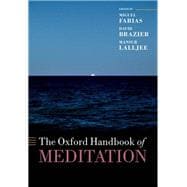Meditation techniques, including mindfulness, have become popular wellbeing practices and the scientific study of their effects has recently turned 50 years old. But how much do we know about them: what were they developed for and by whom? How similar or different are they, how effective can they be in changing our minds and biology, what are their social and ethical implications?
The Oxford Handbook of Meditation is the most comprehensive volume published on meditation, written in accessible language by world-leading experts on the science and history of these techniques. It covers the development of meditation across the world and the varieties of its practices and experiences. It includes approaches from various disciplines, including psychology, neuroscience, history, anthropology, and sociology and it explores its potential for therapeutic and social change, as well as unusual or negative effects.
Edited by practitioner-researchers, this book is the ultimate guide for all interested in meditation, including teachers, clinicians, therapists, researchers, or anyone who would like to learn more about this topic.








